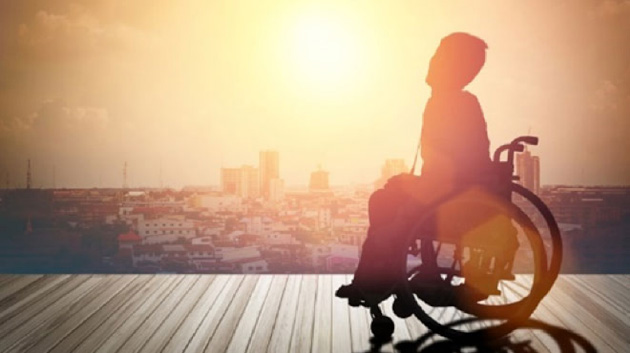A Life with Disabilities Does Not Equal Unhappiness
One Year Since the Sagamihara Stabbings
Key points in this article:
- The killer still thinks it best to euthanize disabled people
- There is meaning to a life with disabilities
- The idea of purging the weak leads to totalitarianism
It has been one year since the Sagamihara stabbings, an incident that sent shock waves reverberating throughout Japan.
The incident occurred in Tsukui Yamayuri En care home for the disabled in Sagamihara City when a former worker, Satoshi Uematsu, stabbed 19 people to death and injured 26 others.
“I think that people who don’t have the ability to communicate their thoughts and feelings should be euthanized,” Uematsu told Sankei Shimbun on the 26th. “There are people in the world who were not given ‘reason and good will’,” he added and separately categorized disabled people as “those who lack a human mind”.
His feelings remain the same one year after the stabbings.
Why the Disabled Exist
Very few people would agree with Uematsu’s extreme idea of euthanizing the disabled, but on the other hand there is a dominant social trend to think that living the life of a disabled person would be miserable.
Studies suggest that of the pregnant women who hear genetic test results confirming the probability of their child being born with a disability, 96% chose abortion. What goes through their minds is not hard to imagine. “If the child is disabled, it would be tough both for the child and for the family,” they think. It is true that abortion is choosing a pre-birth death as opposed to a normal death.
The point missing from most abortion debates, however, is the religious view that disabilities serve a purpose.
We actually plan our lives to some extent before we are born. It is during this process that some people choose to be born with disabilities and illnesses.
Some people choose to live the life of a disabled person to induce others to feel gratitude towards health and to awaken to love. Others may choose a life of disability to relinquish any past-life karma accumulated from inflicting injury on other people.
Seen through spiritual truth, it is clear that disabled people do not chose disability for purposes of unhappiness.
‘Purging the Weak’ Leads to Totalitarianism
Uematsu was a neo-Nazi supporter, claiming upon his arrest that “Hitler’s ideology descended on me 2 weeks ago”.
He held that the disabled ought to be euthanized, and that the weak can be purged if the strong remain. This is Hitlerian totalitarianism itself.
Master Ryuho Okawa, founder and CEO of Happy Science, commented on this in his book, “Love, The Disabled and The Workings of the Devil” (only available in Japanese).
“There is a trend of indifference towards the killing of people with serious disabilities. This may be followed by ‘imitations’. This leads to ‘purebloodism’ and creating a path to neo-Nazism. This sort of thing is already starting . . . This could be our future within 10 years.”
Master Okawa explained that the spirit responsible for the Sagahara stabbings was the German philosopher, Friedrich Nietzsche: the man behind the Ubermensch philosophy and a great influence on Hitler. If the purging of the weak becomes a popular social ideology, there is a danger that the country could become like North Korea and China.
It is unforgivable to deprive innocent people of their lives, regardless of whether they have a serious disability or not. A society that accepts and tries to justify the purging of the weak will be leading itself one step closer to totalitarianism.



















